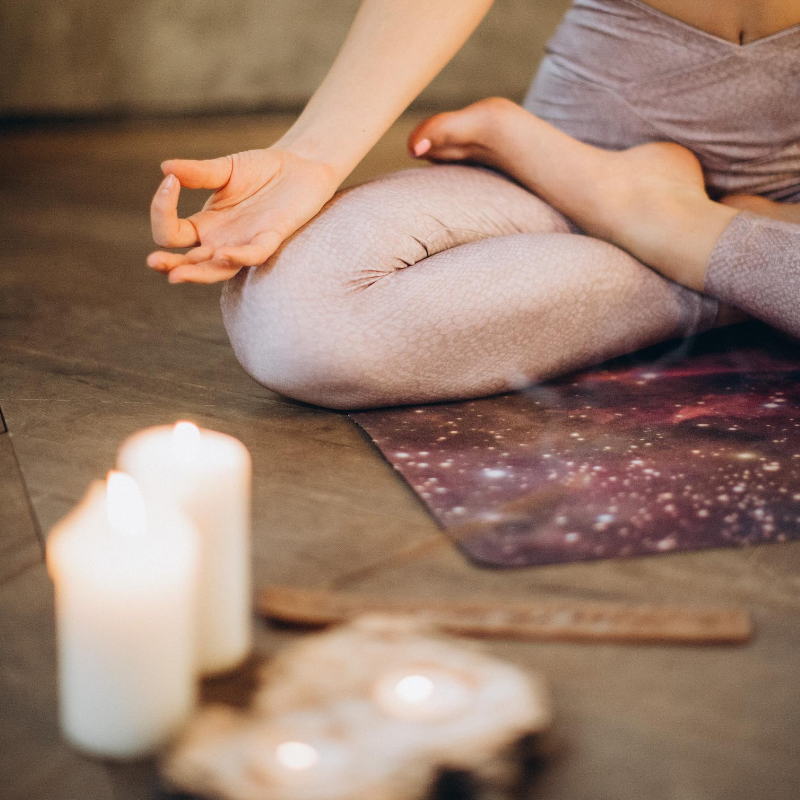
What is Yoga Nidra and why is it important?
Twisting your body into all sorts of yoga poses may not feel comfortable for some during your ikura (period), but there is one form of yoga that we love to do during this time! Yoga Nidra is a yoga practice that promotes relaxation and allows the body to slow and truly relax. We asked Yoga Nidra instructor, Hannah Crerar, to talk to us about the origins and benefits of this practice.
Hannah will also be taking us through a live Yoga Nidra class on AWWA's Instagram this Wednesday (12 August) at 7.30pm (NZT). We would love for you to join us!
Yoga Nidra means yogic sleep. It is an ancient meditative technique that originated in India thousands of years ago. There has been some controversy around the specific origins of Nidra, but Swami Satyananda Saraswati popularised the practice in the 1960s and he drew a connection to the ancient tantric practice called nyasa. There have been adaptations and evolutions of Yoga Nidra in recent years, though the healing benefits of the practice remain universal.
Yoga Nidra is usually practiced laying down on your back - as you would at the end of a yoga practice in savasana. A practice will often include a body scan, breath awareness, emotional opposites, visualisation, mind space awareness and Sankalpa/ intention setting.

Each stage of the practice is purposeful and targets different layers of the mind. The sequence as a whole provides deep restoration on all levels - physical, mental, emotional and spiritual.
Yoga Nidra works to activate the parasympathetic nervous system. The brain waves shift and slow down from rapid beta waves into slow, rhythmic alpha and theta waves. The subconscious is brought into the forefront of awareness and is the reason that the practice is so effective at rewiring old destructive neural pathways.
Yoga Nidra can be practiced at anytime. It is often practiced at night as a segue to a deep restorative sleep but can also be practiced during the day to improve energy levels, decrease anxiety or promote a greater sense of presence.
Practicing on your period or during a new moon phase can be a really wonderful time to practice as these times tend to be more introverted and quiet.
~
Words by Hannah Crerar

